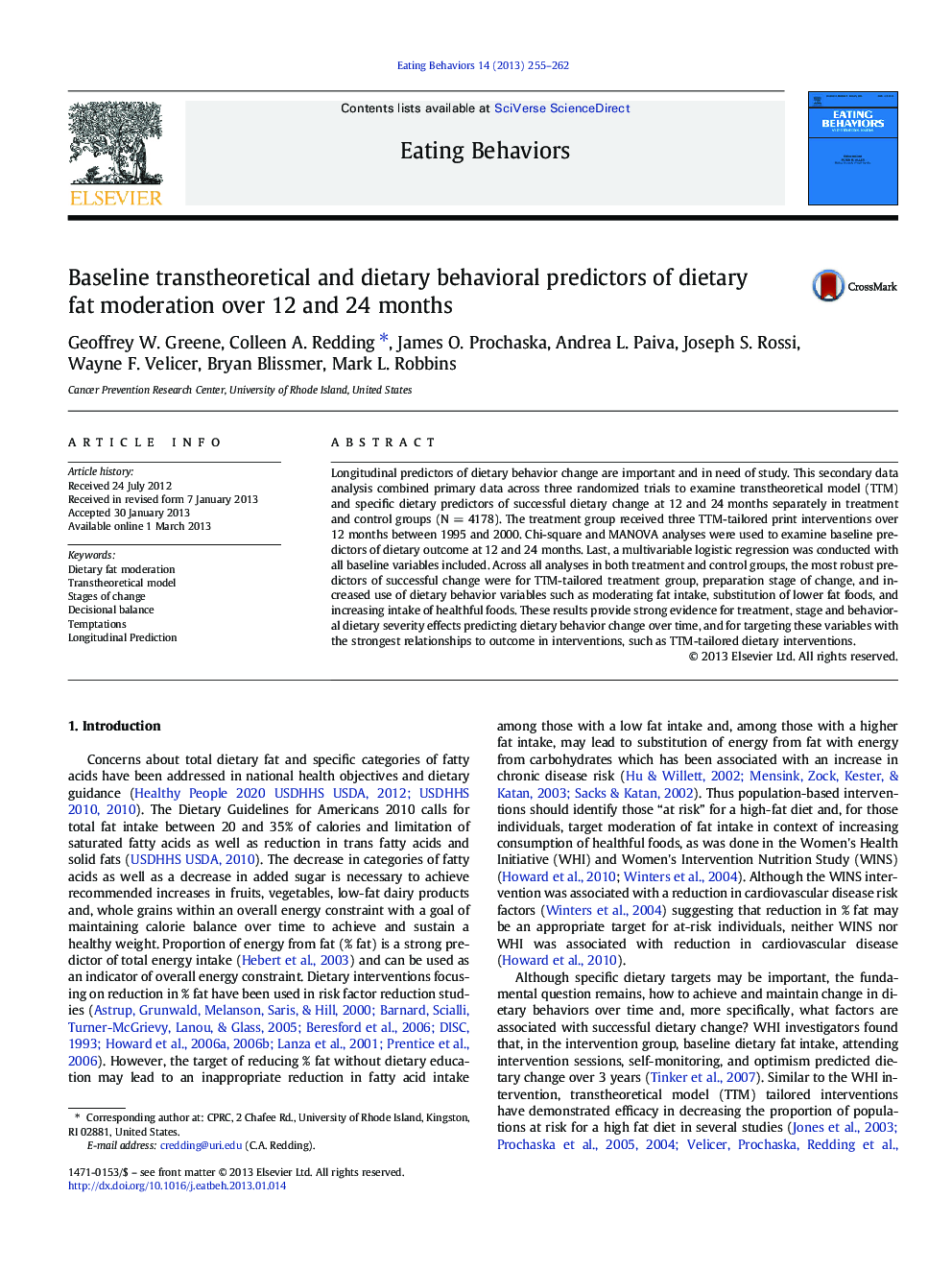| Article ID | Journal | Published Year | Pages | File Type |
|---|---|---|---|---|
| 906619 | Eating Behaviors | 2013 | 8 Pages |
•Baseline predictors of dietary outcome were similar in treatment & control groups.•Strongest predictors were: stage of change & three dietary behavior scales.•TTM-tailored treatment significantly predicted dietary fat reduction.•Predictive validity of stage, treatment & severity effects was supported.•Results support tailored interventions that target constructs related to outcome.
Longitudinal predictors of dietary behavior change are important and in need of study. This secondary data analysis combined primary data across three randomized trials to examine transtheoretical model (TTM) and specific dietary predictors of successful dietary change at 12 and 24 months separately in treatment and control groups (N = 4178). The treatment group received three TTM-tailored print interventions over 12 months between 1995 and 2000. Chi-square and MANOVA analyses were used to examine baseline predictors of dietary outcome at 12 and 24 months. Last, a multivariable logistic regression was conducted with all baseline variables included. Across all analyses in both treatment and control groups, the most robust predictors of successful change were for TTM-tailored treatment group, preparation stage of change, and increased use of dietary behavior variables such as moderating fat intake, substitution of lower fat foods, and increasing intake of healthful foods. These results provide strong evidence for treatment, stage and behavioral dietary severity effects predicting dietary behavior change over time, and for targeting these variables with the strongest relationships to outcome in interventions, such as TTM-tailored dietary interventions.
